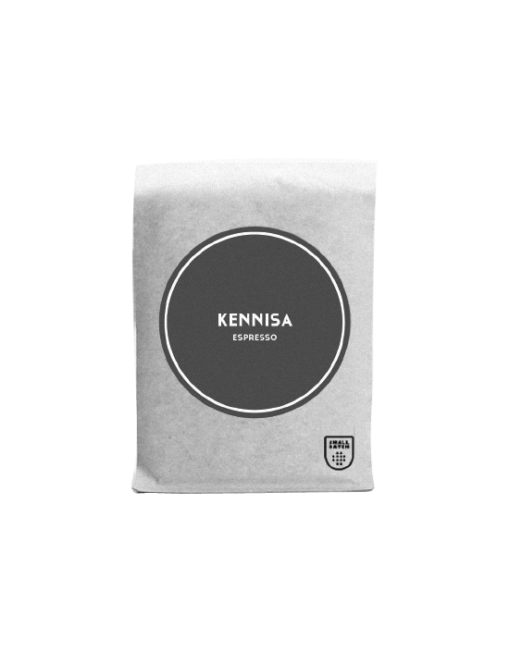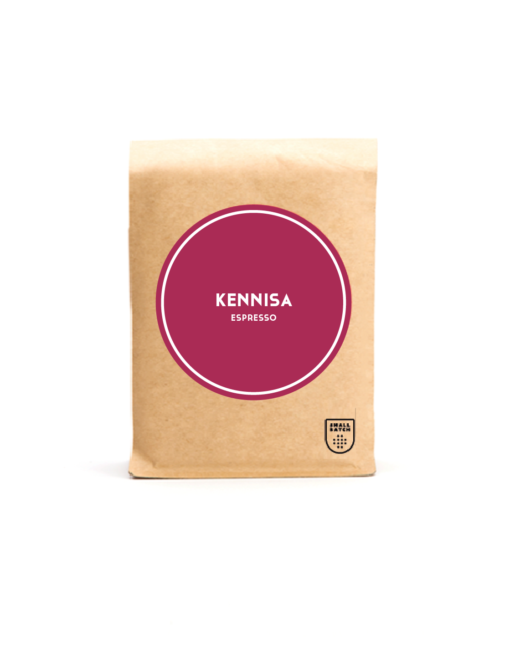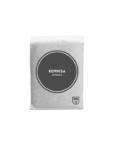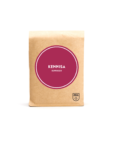Kennisa Cooperative
$21–$75
Kennisa Cooperative
$21–$75
- Producer Kennisa Cooperative – Lot#3
- Attributes eco-pulped, bed dried, Ethiopian landrace
- Origin village of Oma Funtuel, in the Gomma district of Jimma Zone, Ethiopia
- Flavours toffee, cherry, complex acidity, florals
Another Ethiopian Cooperative coffee to come along and catch us unsuspecting: the contributing farmers, the workers and the management of Kennisa have done great things in merely their second year of operation.
We met some of the key folk responsible during our visit on the 27th December 2019, namely Rash, and Tjn (Industrial Manager and Cooperative Manager respectively). The harvest season was more than half way through, and we were able to take a sample from “lot 1” with us. (Little did we know at the time of our visit and our sampling what a delight we’d find at our subsequent first cupping of this coffee back home in Melbourne.)
We’re grateful to Asnake of Keta Muduga Union for the introduction and for assisting with transport logistics and language during our visit and for subsequently supporting us while we shepherded the coffee through Ethiopia’s labyrinthine export process. We’re also grateful to the 305 smallholder farmer members who contributed their prize cherries to the cooperative to make up our ultimate purchase – lot #3 of the 5 produced during the season. There’s gold in them thar hills around the village of Oma Funtuel, in the Gomma district of Jimma Zone…
But let’s go back a step: who are these people of Kennisa and how does the coffee make it from cherry to exportable green coffee? The member farmers who sell their cherries to the Cooperative often have as few as several hundred coffee trees around their homes, and perhaps have up to a single hectare at most. The women of the household often do the picking (of course their is a culture of picking at peak ripeness, but also it is insisted on by Cooperative cherry buyers), yet the men seem more often to be the members. On the day of picking the cherries are de-pulped cleaned using an eco-pulper and the parchment coffee is then placed on beds were it is gently dried (shared during the hottest parts of the day and moved frequently by hand). From here the coffee is transported to the capital Addis Ababa (but only after a purchase contract is in place) where is it prepared for export using modern equipment that removes the parchment layer and grades the coffee by density, size, and and optical sorter. Behind the scenes, millions of bits of paperwork are done, and buyers like us cup and re-cup and take measurements of everything we can measure to ensure we’re buying the lot we wish and that it has been safely dried and is well stored and not exposed to changes in humidity (or high temperatures) while it passes through the process. It’s safe to say our buying team spent several hundred hours completing our Ethiopian purchases this year, and it is entirely a pleasure when the coffee tastes like this!
Finally, what does it taste like and why? It tastes of toffee, cherry, soft florals, and has a complex acidity. It’s mainly the endemic landrace varietals, the culture of ripe picking and a very clean process. There’s no secret herbs and spices in the processing, it has merely revealed (via ripe picking and general processing diligence) the innate quality that is present in the varietal, the soil and the altitude (the surrounding small homes/farms are at a very healthy 2000-2100 masl).
While it’s almost time for us to return to Ethiopia to start planning 2021’s bombshells, happily also the arrivals of 2020 have now settled nicely and might indeed be at their peak!
Pricing Transparency:
In the 2020 buying season, Ethiopian government authorities set minimum coffee sales prices by region, coffee grade and seller type. The minimum pricing stipulated by the authorities for the grades and type we buy fluctuated between $3.10 and $4.20 a pound (USD, FOB Djibouti) during the buying season. We’re stoked that Ethiopia has managed to command such a premium above commodity coffee prices (roughly a 1/4 to a 1/3 of the above prices). With this very safe “fairness” price floor in place, we do not disclose our prices in Ethiopia since, above these minimums stipulated, pricing is basically set by the seller.
Roasted for espresso brewing, or filter brews with milk.
We ship coffee as whole beans by default, if you need your coffee ground, please let us know at the checkout.




